14 November, 2018 | Awards, Resource and waste management
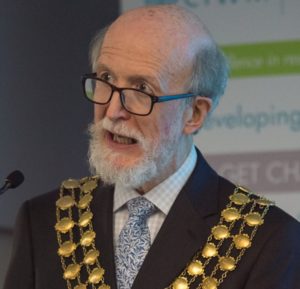
DCW gives his final speech as CIWM President
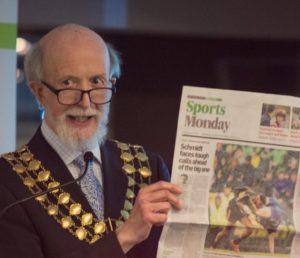
The Gaelic Football team which Enda Kiernan manages appeared in the lead photo story of the previous day’s Irish Times
Professor David C Wilson handed over the Presidency of CIWM, the UK and Irish professional body for resources and waste, to Enda Kiernan at the Aviva Stadium in Dublin on 13 November 2018. He highlighted plastics – both plastics entering the oceans and China’s ban on imports for recycling – as the dominant topic in his Presidential year. The public focus on marine plastics also helped dissemination of his Presidential report, the CIWM-Wasteaid Toolkit Making Waste Work; the website clocked 56,000 visits in its first year, with 7,000 downloads. DCW introduced his fellow Irishman, Enda Kiernan of Cork County Council as the next President. CIWM waited more than a century for its first Irish President; now we have had three in five years, and two in a row, although Enda is the first from the Republic of Ireland.
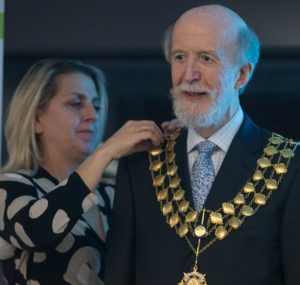
The chain of office is removed from DCW to pass over to Enda Kiernan
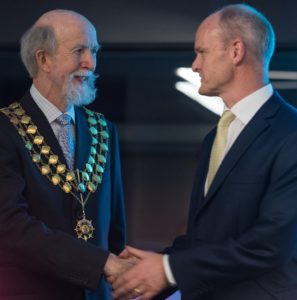
DCW congratulates Enda Kiernan on becoming the 103rd President of CIWM
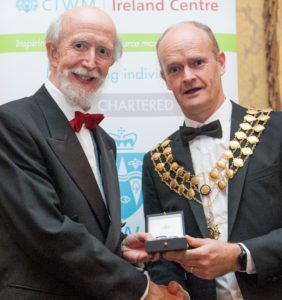
Enda Kiernan presents DCW with his Past President’s medal
31 October, 2018 | Conference, Resource and waste management
In his October column for the CIWM Journal, Professor David C Wilson reflects on the dominant story of his CIWM Presidential year, how we respond to the crisis of plastics entering our oceans. Which plastic uses are diabolic and should be banned, and which do we really need? One of his starting points was a recent CIWM-sponsored report which proposed a five-fold use-based categorisation of plastics. The other was the July Klosters Forum, which gathered 60 stakeholders from around the World to brainstorm on how to stem the flow of plastics into the oceans.
DCW proposes a three-way classification. At one extreme are the unacceptable, pointless, and often very short term (or ‘diabolic’) uses, which should be banned. At the other extreme are necessary or sustainable (‘fantastic’) uses, such as infection control, light-weighting cars and aircraft, and reducing food waste. In between is the largest category, which he labels as ‘indeterminate’. This can be further broken down into problem plastics, and replaceable plastics, which should both be phased out; and hard to replace plastics, where the focus should be on redesign and consolidation into a smaller number of truly ‘easy to recycle’ plastics used for ‘higher environmental value’ applications, such as preventing food waste.




